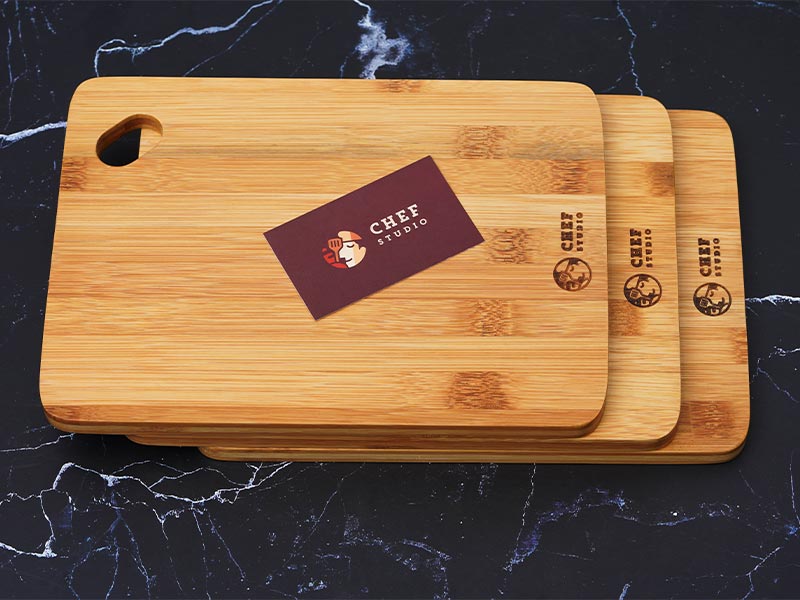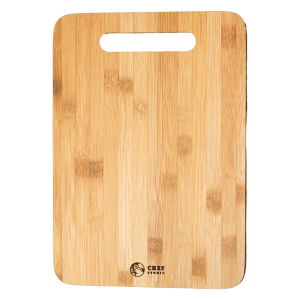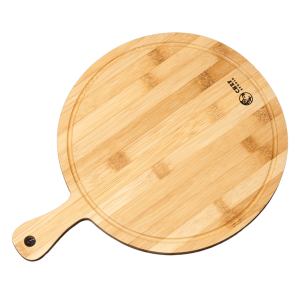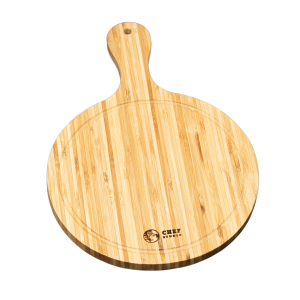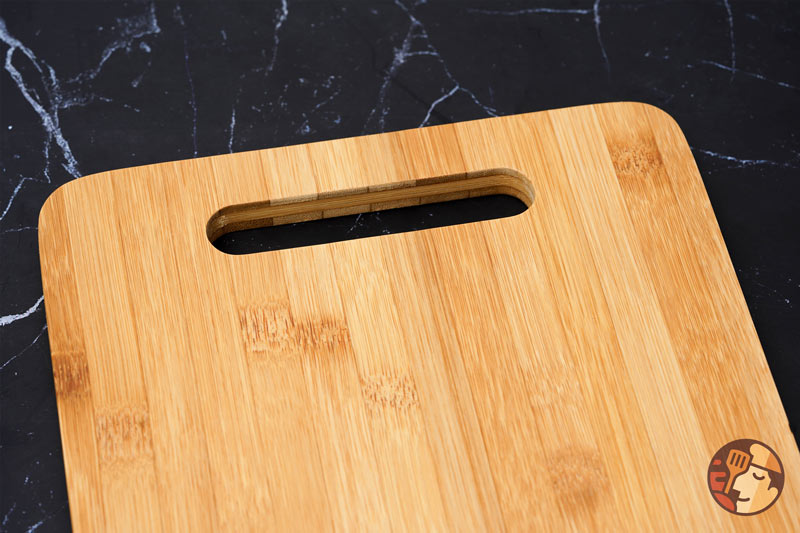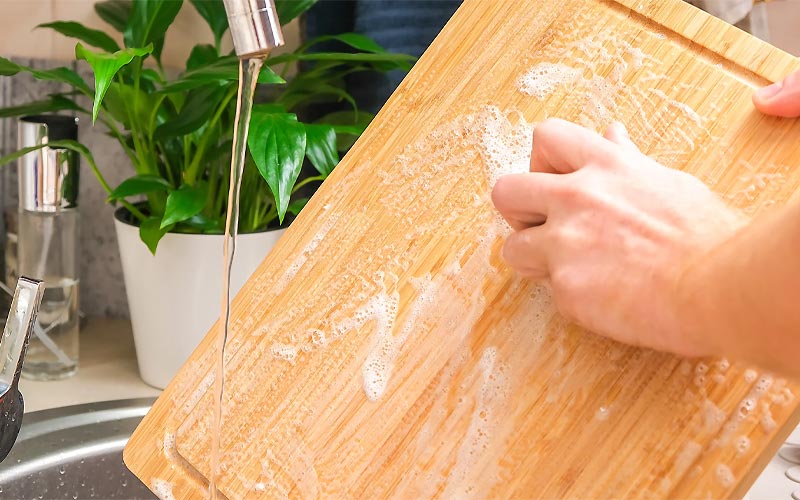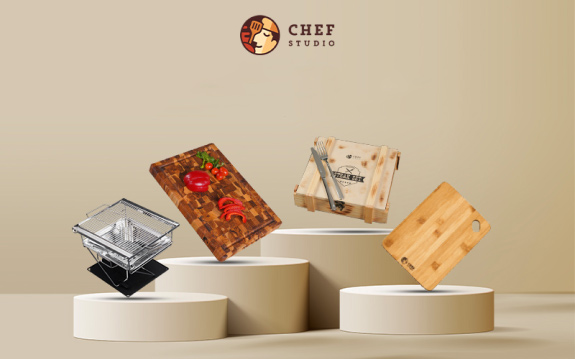Are Bamboo Cutting Boards Dishwasher Safe?
Bamboo cutting boards are a popular choice for their durability, eco-friendliness, and sleek appearance. While they are known for being resilient and moisture-resistant, many people wonder: Is bamboo cutting board dishwasher safe? Understanding how bamboo reacts to heat and prolonged water exposure is crucial to maintaining the quality and lifespan of your cutting board.
The Properties of Bamboo Cutting Boards
Bamboo cutting boards are favored by both home cooks and professional chefs due to their durability, moisture resistance, and eco-friendly nature. Before determining whether bamboo cutting board dishwasher safe or not, it’s important to understand the key characteristics of bamboo to ensure proper maintenance and longevity.
Durability and Strength
One of the standout features of bamboo cutting boards is their impressive durability. Bamboo is a dense and resilient material that resists scratches, dents, and everyday wear and tear. This toughness allows the board to maintain its shape and remain flat, even with frequent use. Its hardness makes it long-lasting while still being gentle enough to prevent excessive dulling of knife edges.
Moisture Resistance
Bamboo’s natural density provides a level of moisture resistance that helps prevent water absorption. This characteristic reduces the risk of bacterial growth, making bamboo cutting boards more hygienic compared to some traditional wooden boards. However, bamboo is not completely waterproof—leaving the board submerged in water or exposed to excess moisture for extended periods can lead to warping or cracking. To protect the board, it’s best to clean it promptly and let it dry thoroughly.
Heat Sensitivity
Although bamboo is tough, it is sensitive to high temperatures. Exposing bamboo cutting boards to direct heat—such as placing hot pots on the surface—or cleaning them in a dishwasher can weaken the material over time. To preserve their integrity, bamboo boards should be washed by hand with mild soap and dried immediately after use. Regularly conditioning the board with food-safe oil will further protect it from drying out or splitting.
Maintaining Bamboo Cutting Boards
Proper care is essential to keep bamboo cutting boards in excellent condition. Regularly oiling the surface with mineral oil helps maintain moisture levels and prevents cracking. Avoid exposing the board to extreme heat or soaking it in water. With the right maintenance, bamboo cutting boards can remain durable, hygienic, and a valuable addition to your kitchen for years.
Are Bamboo Cutting Boards Dishwasher Safe?
When cleaning kitchen tools, you might wonder, “Are bamboo cutting boards dishwasher safe?” While it may seem like a quick and easy cleaning solution, using a dishwasher to clean bamboo cutting boards is not recommended.
The combination of intense heat, harsh detergents, and prolonged exposure to water in dishwashers can cause significant damage to bamboo over time, compromising both its appearance and functionality.
Why Dishwashers Are Harmful to Bamboo Cutting Boards
Bamboo cutting boards are particularly susceptible to warping, cracking, and splitting when subjected to the harsh environment of a dishwasher. The high heat causes the natural fibers of the bamboo to expand and contract, leading to deformation. Meanwhile, excessive water exposure can weaken the board’s structure, increasing the risk of cracks and splits.
These physical damages not only reduce the board’s lifespan but can also create tiny crevices where moisture and bacteria may accumulate, making the surface less sanitary for food preparation.
Additionally, the strong chemical detergents used in dishwashers strip away the natural oils in bamboo, leaving the board dry and more prone to damage. This makes regular maintenance even more important if you want your cutting board to last.
The Best Way to Clean Bamboo Cutting Boards
To preserve the quality and longevity of your bamboo cutting board dishwasher safe alternative, it’s best to wash it by hand. Follow these simple steps to keep your board clean and in top condition:
- Gentle Cleaning: Use warm water, mild soap, and a soft sponge or brush to clean the board’s surface gently. Avoid abrasive scrubbing tools that can scratch the bamboo.
- Rinse Thoroughly: Rinse the board well to remove any soap residue.
- Dry Immediately: After washing, dry the cutting board completely with a clean towel to prevent water from seeping into the bamboo fibers.
Additional Care Tips for Bamboo Cutting Boards
Proper care goes a long way in maintaining the durability and appearance of your bamboo cutting board. Here are a few extra steps to keep your board in the best shape:
- Oil Regularly: Apply a thin layer of food-safe mineral oil or bamboo conditioner every few weeks to keep the board hydrated and improve its resistance to moisture.
- Avoid Soaking: Never soak your bamboo cutting board in water or leave it submerged, as this can cause swelling and structural damage.
- Store Properly: Keep your board in a dry, well-ventilated area, away from direct sunlight or extreme temperature changes, which can lead to warping or cracking.
- Disinfect Naturally: To remove odors and disinfect the surface, occasionally rub the board with a mixture of lemon juice and coarse salt, then rinse and dry thoroughly.
In conclusion, through this article, Chef Studio has answered the question: “Are bamboo cutting boards dishwasher safe?” The answer is no. Bamboo cutting boards are not dishwasher safe due to the risk of warping, cracking, and reduced durability when exposed to high heat and prolonged moisture. To keep your bamboo cutting board in top condition, handwashing with warm water and mild soap, followed by thorough drying and regular oiling, is the best approach. With proper care, your bamboo board will remain a durable and safe tool for food preparation.

